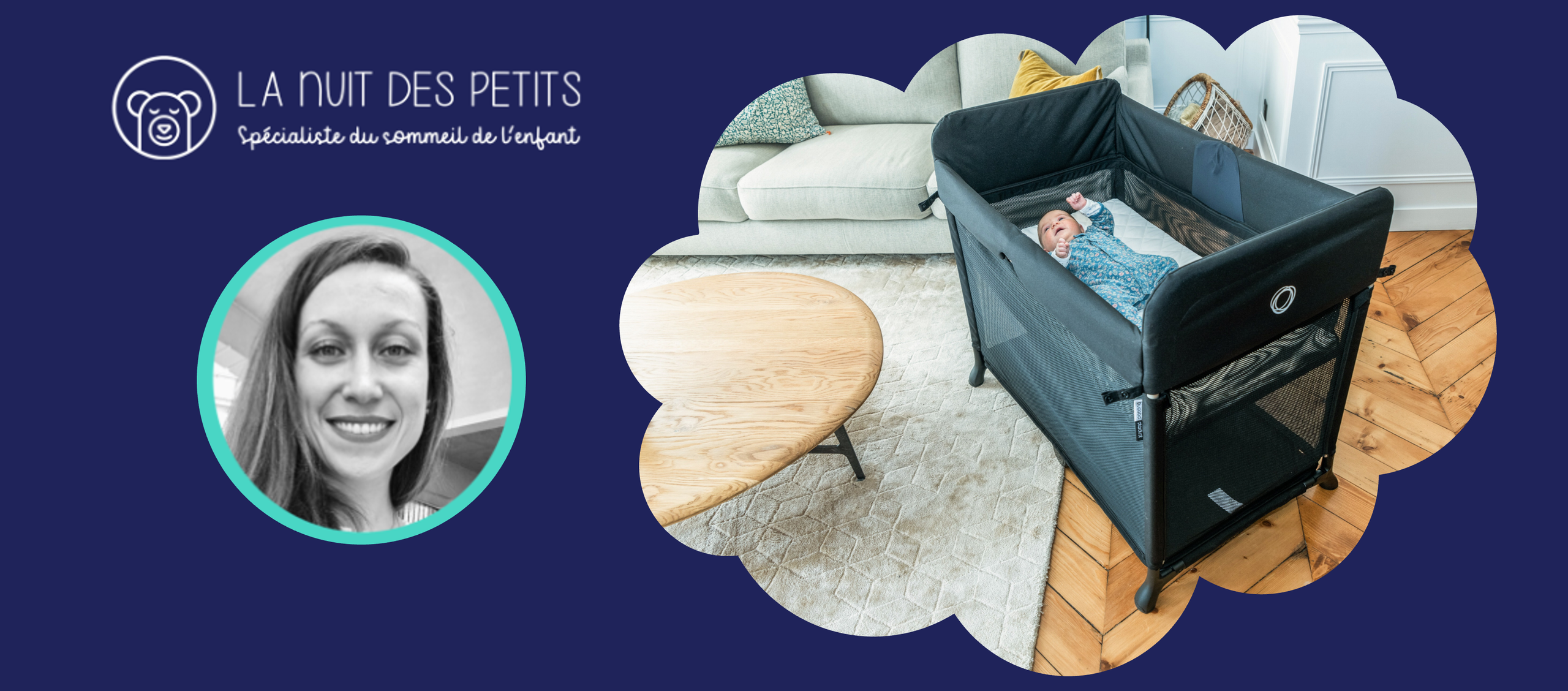
Sleep expert answers most asked questions on babies sleep'
We know that babies' sleep cycles and quality is one of the most raised topics among new parents. Which is shy we asked you and all of our Bugaboo community what were your top questions on your babies sleep and passed them over to Sandra, sleep expert from La Nuit des Petits. Here are her answers.
1-3 months old babies
- "What is the sleep schedule of a 5 week old baby?
It all depends, some babies will sleep a lot while others will already have a little bit of time awake. A baby between 0 and 3 months old discovers the world, observes what surrounds him, however at this age, the time of awakening is limited, between 45 minutes to one hour maximum, but some will have only 20 minutes of awakening, just the time to suckle.
A baby's rhythm can also vary depending on the time of day.
- How do you put a five-week-old baby, who is very awake between 8 and 11 pm, to sleep ?
The idea is to put the child in condition to sleep.
This conditioning goes through several steps such as dimming the lights, speaking softly, turning off all sources of visual or sound pollution (screens, television, music...) in order to have absolute calm.
A child who is too excited in the evening may also be a sign that he or she has not slept enough during the day. It is therefore recommended to follow the child's rhythm and signs of fatigue (red eyelids or arches). A baby who cries for a long time is a sign of great tiredness, you can for example put him in a newborn carrier, against you, to soothe and reassure him.
- My baby only wants to fall asleep on me, what can I do?
No need to worry!
During the first 3 months, babies need to be carried. Carrying promotes the bond between parents and children, this is called the "4th trimester".
If you want to guide your baby to sleep on his or her back, you can use a stroller. The first few times, your baby may be uncomfortable on his back, but the movements will help him to let go and fall asleep.
Don't be discouraged alternating between the two. It will allow your baby to get used to sleeping without you, little by little.
- How can I help my baby sleep in a co-sleeping bed without crying?
If your baby cries as soon as he is in his bed, proceed in stages.
You should not let your newborn cry for too long and especially alone.
Step 1: Set up a soothing ritual and verbalize it to your child. Explain to him that it is important to sleep in his bed because that is what you have chosen for him.
Step 2: Accompany your child. Stay with your child and give him a big hug. For example, say "I'm going to put you down in your bed, is that okay with you? "and then try it.
Step 3: Observe the first reactions, pick up your child and walk around the room. Repeat the action until the child calms down. You can also put your arms around your child and stay over the bed for a few minutes to make him feel safe. Once he is relaxed, you can gently remove your arms.
Little by little, you'll see that putting your baby to bed will become easier.
- Baby gets up very early (5am) and goes to bed around 7:30pm/8pm. Do I need to sleep-train him?
Several factors can cause very early waking.
There is a day-night rhythm, i.e., "Does my child sleep enough during the day? Does he sleep enough at night? ".
A good night's sleep is on average between 10am and 12pm, but some can sleep 9:30am and still be in great shape and others will need 1pm. Assessing your baby's mood when he or she wakes up is a very good way to make sure he or she is getting enough sleep.
Other questions you can ask yourself are, "Are the sleeping conditions right? Is it completely dark in the room? ". Sometimes a simple LED light on the baby monitor can disturb your child and wake him up at 5am.
Finally, it is also important to evaluate the temperature of the room. Temperature variations can wake your child up.
4-6 months old babies
- My baby is taking micro-naps (30 min), even though all the conditions are met, what should I do?
Microsleeps are a symptom of small babies.
If your child knows how to fall asleep on his own but can't link the sleep cycles together, there is probably a problem with the rhythm. In this case, keep track of nap times and shift the schedule by 15-20 minutes to increase the pressure to sleep. If after 30 minutes, your child still wakes up, stay by his side, encourage him to go back to sleep by trying to rock him in his bed or by putting the pacifier back on.
See how he reacts; if he gets upset, stop and start again tomorrow.
- How do you start a 4-month-old baby's naps in his crib?
This is a very good question that all parents ask themselves.
Start with the easiest nap, which is in the morning!
1 year old babies
- My child hasn't been sleeping as well since he learned to walk. How long will this last and what should I do?
Sleep regression is something you'll see a lot of in the first year of your child's life, so don't worry!
These regressions can be due to a motor development such as teething or the acquisition of speech and can happen at any time in a child under 3 years of age because sleep is in perpetual construction.
Encourage habits, a ritual that will allow your child to keep reference points. When there is a regression, you must really encourage the child and be patient. This regression can last 24 to 48 hours or 3 to 4 weeks, depending on your child.
By keeping stable reference points such as schedules, a ritual and then an Olympian calm, your child will be encouraged to get back on track, as usual.
- How to make it easier for a baby to fall asleep independently? How to know if the baby is waking up out of hunger or out of habit?
The first thing to do is to evaluate your child's needs over 24 hours, i.e., "does he take enough milk over 24 hours? Some children do not take milk at daycare, so they compensate at night.
The second question to ask is "is bottle feeding or suckling part of the sleep strategy? Does he need to suckle to go back to sleep?". If so, try doing it differently. If mom is the one who is breastfeeding, try to include the second parent so that they can transition smoothly and support her to fall asleep without the breast or bottle.
2 years and older children
- My child has been sleeping well for the past 2 years but now needs to be kept asleep and wakes up several times a night. What should I do?
When children are sleeping well and suddenly start demanding the presence of their parents, there must be a regression behind it.
It could be the acquisition of language, the first fears and that they have difficulty expressing it. It's all about reassurance. Your child needs to feel secure.
If he was falling asleep alone and suddenly needs you, stay with him and ask him for example: "When you are ready, I will go, if you agree" or leave the door open and tell him "I am in the next room, if you need me, call me" and see how he reacts.
Above all, the thing not to do is force it, go gently, it will work, be patient.
- A few weeks before I welcome my 2nd child, my 2 year old wants me to sleep with him. How should I react?
The arrival of a new child in the home is always wonderful news, but it can also be a source of anxiety for the older child.
If your child wants you in bed at night, you can either accept or not. If you don't agree, you need to explain to your child and find a common ground with him. You can offer him a story or an extra cuddle, tell him that you are next door and leave the door open, tell him that you are there, next door and that if he needs you, you are there. This will make him feel safe.
The most important thing is to reassure him, to encourage him, to value him"
Sandra, La nuit des petits
Sandra is a children sleep consultant and a state certified early childhood professional. She supports parents who want to improve their child's sleep from 0-6 years old.
She has her training through the Sleep Sense™ approach created by the renowned Dana Obleman, which has helped over 100,000 families around the world get back to a good night of sleep.
As a mother of 3 children who sleep wonderfully thanks to this approach, she decided to support other families struggling by launching her company "La Nuit Des Petits®".
For more information : https://lanuitdespetits.com/
